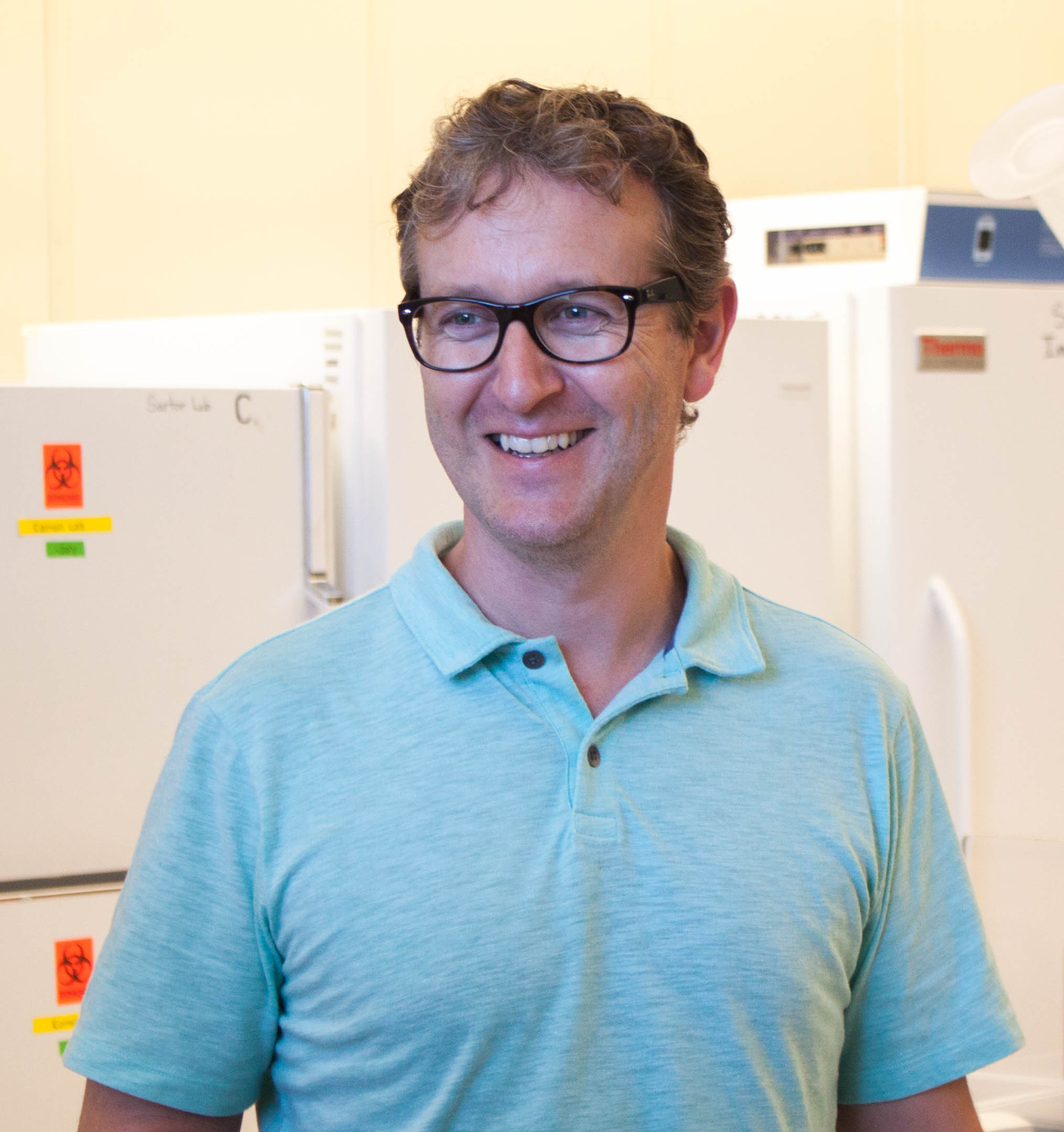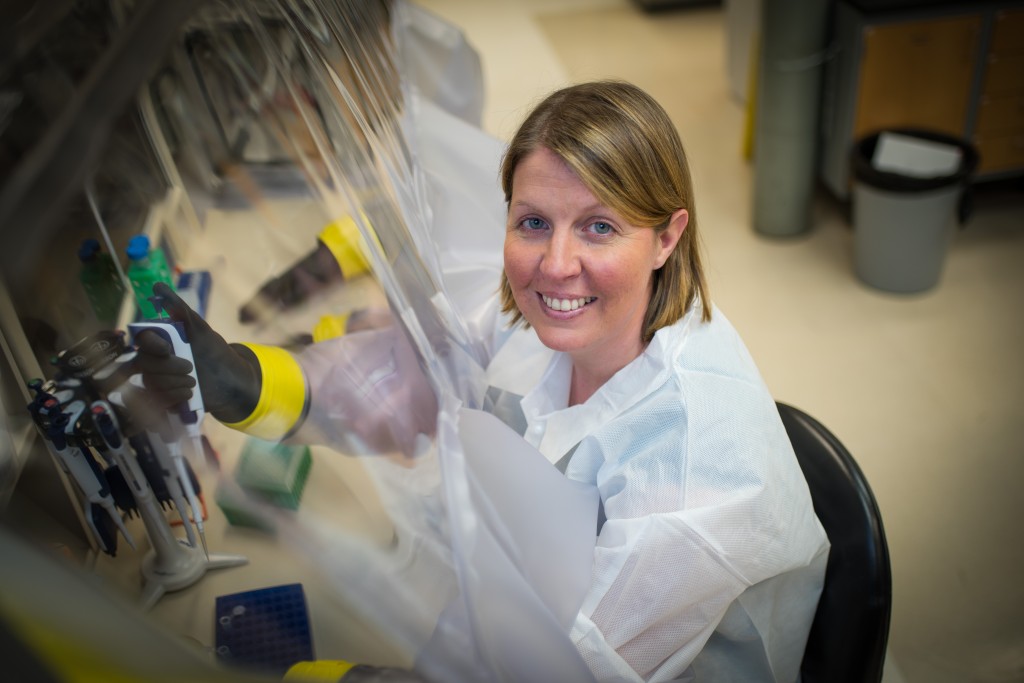Our Mentors
Balfour Sa rtor, M.D., Distinguished Professor, Medicine (GI), Microbiology & Immunology, T32 Director, investigates mechanisms of gene-environment interactions between susceptible hosts, resident bacteria and diet using genetically engineered rodents and defined bacterial species under gnotobiotic conditions. These studies investigate the role of endogenous IL-10 from antigen presenting cells in regulating innate and adaptive immune responses to resident bacteria and bacterial species-specific induction of mucosal IL-10. His recent studies are focused on identifying bacterial subsets that are responsible for inducing experimental colitis and mediating protective immune responses with a goal of finding targets for selective therapeutic bacterial manipulation to prevent and treat intestinal inflammation. He is currently investigating functional properties of bacterial metabolites that mediate mucosal protections vs injury and deleting genes driving these functions for in vivo and in vitro functional testing in gnotobiotic mice. In addition, he is performing translational research Shehzad Sheikh and colleagues from Washington Univ., St. Louis to develop a predictive model of postoperative recurrence of Crohn’s disease based on tissue gene expression, microRNA profiles, mucosal and fecal microbial profiles and environmental triggers identified in resected ileal tissues of Crohn’s disease patients undergoing their first surgery. In addition, Dr. Sartor is investigating mechanisms by which dietary constituent’s influences enteric microbiota composition and function and experimental colitis, providing insights that can be readily translated to human investigations and dietary therapies. http://sartorlab.web.unc.edu/about/sartor-lab/
rtor, M.D., Distinguished Professor, Medicine (GI), Microbiology & Immunology, T32 Director, investigates mechanisms of gene-environment interactions between susceptible hosts, resident bacteria and diet using genetically engineered rodents and defined bacterial species under gnotobiotic conditions. These studies investigate the role of endogenous IL-10 from antigen presenting cells in regulating innate and adaptive immune responses to resident bacteria and bacterial species-specific induction of mucosal IL-10. His recent studies are focused on identifying bacterial subsets that are responsible for inducing experimental colitis and mediating protective immune responses with a goal of finding targets for selective therapeutic bacterial manipulation to prevent and treat intestinal inflammation. He is currently investigating functional properties of bacterial metabolites that mediate mucosal protections vs injury and deleting genes driving these functions for in vivo and in vitro functional testing in gnotobiotic mice. In addition, he is performing translational research Shehzad Sheikh and colleagues from Washington Univ., St. Louis to develop a predictive model of postoperative recurrence of Crohn’s disease based on tissue gene expression, microRNA profiles, mucosal and fecal microbial profiles and environmental triggers identified in resected ileal tissues of Crohn’s disease patients undergoing their first surgery. In addition, Dr. Sartor is investigating mechanisms by which dietary constituent’s influences enteric microbiota composition and function and experimental colitis, providing insights that can be readily translated to human investigations and dietary therapies. http://sartorlab.web.unc.edu/about/sartor-lab/
Shehzad Z. S heikh, M.D., Ph.D., Associate Professor of Medicine & Genetics. T32 Co-Director. His research program focuses on the pathogenesis of multiple immune mediated diseases specifically the Inflammatory Bowel Diseases, food allergy and lupus. In general terms, his laboratory seeks to understand how information is encoded and dynamically utilized in immune and epithelial cells from healthy and disease prone individuals. They focus specifically on genes that regulate response to the bacteria. Many of these genes make products that regulate the immune system and epithelial cell biology. These products defend against the attack of foreign materials; such as bacteria that live in the intestine and contribute to multiple systemic diseases. Dr. Sheikh’s group uses genome-sequencing technology to precisely identify regions throughout the genome that are potential ‘on’ or ‘off’ switches for these genes. There is a fine balance between the genes that produce inflammatory substances that are necessary to kill bacteria and genes that produce anti-inflammatory substances that are important to prevent damage to the intestine. If this balance between inflammatory and anti-inflammatory substance production in the intestine is disrupted, autoimmunity may result. Dr. Sheikh’s lab focuses on understanding how these important controllers of inflammation are turned on and off in IBD, food allergy and lupus. They also study how inflammatory and anti-inflammatory signals impact disease severity, progression and response to therapy. This information has the potential to increase our understanding of causes of disease (personalized medicine) and to contribute to the development of new treatments.
heikh, M.D., Ph.D., Associate Professor of Medicine & Genetics. T32 Co-Director. His research program focuses on the pathogenesis of multiple immune mediated diseases specifically the Inflammatory Bowel Diseases, food allergy and lupus. In general terms, his laboratory seeks to understand how information is encoded and dynamically utilized in immune and epithelial cells from healthy and disease prone individuals. They focus specifically on genes that regulate response to the bacteria. Many of these genes make products that regulate the immune system and epithelial cell biology. These products defend against the attack of foreign materials; such as bacteria that live in the intestine and contribute to multiple systemic diseases. Dr. Sheikh’s group uses genome-sequencing technology to precisely identify regions throughout the genome that are potential ‘on’ or ‘off’ switches for these genes. There is a fine balance between the genes that produce inflammatory substances that are necessary to kill bacteria and genes that produce anti-inflammatory substances that are important to prevent damage to the intestine. If this balance between inflammatory and anti-inflammatory substance production in the intestine is disrupted, autoimmunity may result. Dr. Sheikh’s lab focuses on understanding how these important controllers of inflammation are turned on and off in IBD, food allergy and lupus. They also study how inflammatory and anti-inflammatory signals impact disease severity, progression and response to therapy. This information has the potential to increase our understanding of causes of disease (personalized medicine) and to contribute to the development of new treatments.

Janelle C. Arthur, Ph.D., Assistant Professor, Microbiology & Immunology. Our group seeks to understand how inflammation alters the pro-carcinogenic and pro-fibrotic capabilities of the microbiota, with the long-term goal of targeting resident microbes as a preventive and therapeutic strategy to lessen inflammation and reduce the risk of co-morbidities like fibrosis and colorectal cancer. Our general approach combines genomics, bioinformatics, immunology, bacterial cultivation techniques and gnotobiotic mouse models to uncover mechanisms by which gut bacteria promote inflammation and neoplasia. One current project employs our newly developed high-throughput approach to quantify genetically similar but functionally distinct intestinal E. coli strains in vivo. This approach overcomes technological limitations associated with profiling bacterial metagenomes intimately associated with host tissues and define molecular features required for chronic E. coli colonization of the inflamed mucosal tissues. Another project will define mechanisms by which microbial metallophores – secreted small molecules with high affinity to bind biologically important metals – promote fibrosis and link microbial metal scavenging and altered host metal homeostasis with Crohn’s disease associated fibrosis. Finally, in collaboration with a colleague in UNC’s chemistry department, we have discovered a novel mechanism regulating production of the E. coli -derived genotoxin Colibactin and are engaged in studies exploring the associated pro-carcinogenic effects. Ultimately, this research will uncover novel microbial targets and enable us to manipulate the intestinal microbiota as a therapeutic target for human digestive diseases and cancer. https://arthurlab.weebly.com/
Luther Bartelt, MD, DTM&H, Assistant Professor of Medicine, Division of Infectious Disease. Recent studies examining the intersection between gut pathogens and childhood malnutrition provide evidence that the range of diseases resulting from gut infections extends beyond episodic diarrhea, to likely drivers of physical and cognitive developmental impairment. Although the mechanisms of viral and bacterial pathogen-mediated diarrhea have been extensively studied, how non-diarrhea associated pathogens, like the intestinal protozoan Giardia, erode gut function remains poorly understood. Dr. Bartelt’s laboratory draws upon collaborations in global epidemiological studies that point to environmental determinants, such as diet and intestinal microbiota, as major determinants of the pathogenesis of infection-mediated enteropathy. As a member of the Center for Gastrointestinal Biology and Diseases, Dr. Bartelt has developed innovative infection models using gnotobiotic techniques to test the hypothesis that diet-dependent susceptibility to Giardia infection, and subsequently Giardia-enteropathy, occur due to re-structuring of the intestinal microbiota during nutrient-deprived states. The laboratory uses a variety of in vivo and in vitro approaches to dissect how both diet and the parasite shift resident bacterial metabolism (specifically related to bile acids and amino acids) with consequences on mucosal defenses and epithelial cell function. His lab uses in vitro epithelial cell monolayers, wild-type and immune knockout mice (ie. Rag2-/-), selective colonization of germ-free mice, microbial metagenomics, host transcriptomics and immune profiling, and collaborations with metabolomics experts to understand microbe-microbe and microbe-host interactions. The goals of these pre-clinical studies are to elucidate new mechanisms of gut infection pathogenesis, and to identify pathways critical to mucosal restitution as potential novel therapies to mitigate pathogen-induced enteropathies. Other projects in Dr. Bartelt’s laboratory focus on how intestinal microbiota either protect or allow gut colonization with multi-drug resistant pathogens, like carbapenem-resistant Enterobacteriaceae (CRE). These studies seek to align the genotypic characteristics of isolates from patients with clinical CRE infection with individual isolate colonization potential using in vitro and in vivo models. https://www.med.unc.edu/cgibd/bartelt-luther/
Aadra P.  Bhatt, Ph.D., Assistant Professor, Medicine (GI) is a multidisciplinary scientist integrating microbiology and chemical biology to understand the reciprocal interactions between intestinal microbiota, pharmaceutical compounds, and the intestinal epithelium, with the long-term goal of developing novel, personalized strategies to improve gastrointestinal health. Intestinal bacteria carry out a multitude of biotransformations that alter metabolism of many endogenous substances (e.g. hormones, neurotransmitters), and environmental agents (e.g. pharmaceutical compounds, dietary constituents, chemical toxicants). We seek to leverage bacterial drug metabolism to develop clinically-relevant compounds with fewer systemic side effects. Bacterial metabolism of certain drugs can result in gastrointestinal toxicity, such as diarrhea resulting from chemotherapy treatment. Current in vitro tools do not faithfully recapitulate or predict chemotherapy-induced gastrointestinal toxicity, and preclinical drug development relies on costly and time-consuming in vivo testing. We seek to streamline this assessment and therapeutic development through the use of novel complementary in vitro and in vivo methods that are facile, predictive, and physiologically relevant. Collectively, these will help elucidate mechanisms by which pharmaceutical compounds injure the intestinal epithelium either directly, or via bacterial drug metabolism.
Bhatt, Ph.D., Assistant Professor, Medicine (GI) is a multidisciplinary scientist integrating microbiology and chemical biology to understand the reciprocal interactions between intestinal microbiota, pharmaceutical compounds, and the intestinal epithelium, with the long-term goal of developing novel, personalized strategies to improve gastrointestinal health. Intestinal bacteria carry out a multitude of biotransformations that alter metabolism of many endogenous substances (e.g. hormones, neurotransmitters), and environmental agents (e.g. pharmaceutical compounds, dietary constituents, chemical toxicants). We seek to leverage bacterial drug metabolism to develop clinically-relevant compounds with fewer systemic side effects. Bacterial metabolism of certain drugs can result in gastrointestinal toxicity, such as diarrhea resulting from chemotherapy treatment. Current in vitro tools do not faithfully recapitulate or predict chemotherapy-induced gastrointestinal toxicity, and preclinical drug development relies on costly and time-consuming in vivo testing. We seek to streamline this assessment and therapeutic development through the use of novel complementary in vitro and in vivo methods that are facile, predictive, and physiologically relevant. Collectively, these will help elucidate mechanisms by which pharmaceutical compounds injure the intestinal epithelium either directly, or via bacterial drug metabolism.
Anthony B likslager, DVM, Ph.D., Professor, Surgery and Gastroenterology, School of Veterinary Medicine, N.C. State University explores mechanisms of repair of the small intestinal inter-epithelial tight junction. As a DVM/ PhD, he exposes trainees to the most appropriate models available to answer their hypotheses. Dr. Blikslager trained as a physiologist and combines state of the art molecular and genetic techniques with time honored techniques such as the Using chamber. Following initial emphasis on repair of ischemic injury, he has studied other mechanisms of epithelial recovery following events such as stress and chemical injury (bile and acid). Future research plans will include microbial injury and associated inflammation, followed by studies of facilitating repair. Mentoring is augmented by graduate coursework at NC State University in gastroenterology, immunology, cell biology, genetics, and statistics. https://comparativegastroenterologylab.wordpress.ncsu.edu/
likslager, DVM, Ph.D., Professor, Surgery and Gastroenterology, School of Veterinary Medicine, N.C. State University explores mechanisms of repair of the small intestinal inter-epithelial tight junction. As a DVM/ PhD, he exposes trainees to the most appropriate models available to answer their hypotheses. Dr. Blikslager trained as a physiologist and combines state of the art molecular and genetic techniques with time honored techniques such as the Using chamber. Following initial emphasis on repair of ischemic injury, he has studied other mechanisms of epithelial recovery following events such as stress and chemical injury (bile and acid). Future research plans will include microbial injury and associated inflammation, followed by studies of facilitating repair. Mentoring is augmented by graduate coursework at NC State University in gastroenterology, immunology, cell biology, genetics, and statistics. https://comparativegastroenterologylab.wordpress.ncsu.edu/

Kathleen M. Caron, Ph.D., Professor and Chair, Cell Biology and Physiology. In the past dozen years, an expanded repertoire of genes and molecular pathways involved in the development of the lymphatic vascular system has been elucidated. However, considering the essential role of lymphatic vessels in intestinal lipid absorption and the increased prevalence of inflammatory diseases of the intestine, it is rather remarkable that there are currently more questions than answers regarding whether and/or how lymphatic vessels contribute to (or may be causative of) pathophysiological diseases in adults. Our research group directly addresses many of these questions by building upon our expertise in G protein-coupled receptor pathways in lymphatics. For example, our recent studies have used an inducible knockout allele to show that loss of the adrenomedullin receptor in adult animals fully recapitulates the clinical sequelae related to lymphangiectasia, including dilated lymphatics, reduced intestinal lipid absorption, protein losing enteropathy and limb edema. Current studies build upon these findings and strive to elucidate the physiological and molecular processes that lymphatics play in i) intestinal disease initiation and progression, ii) normal intestinal lipid absorption under a variety of different challenge conditions iii) the initiation and progression of mucosal injury, inflammation and repair and iv) the neurolymphocrine regulation of nutrient absorption. The elucidation of these molecular pathways may ultimately form the basis of GPCR-targeted approaches for the therapeutic modulation of intestinal lymphatic vessels, particularly during lymphangiectasia and disease conditions associated with digestive tract inflammation. http://caronlab.web.unc.edu/
Ian M. Ca rroll, Ph.D., Research Assistant Professor, Gastroenterology, School of Medicine (UNC). The goals of my research are to determine the mechanisms through which specific members of the intestinal microbiota influence gastrointestinal physiology, adiposity, and behavior. My laboratory has developed and validated techniques to collect and store biological human and murine samples for microbiological analyses. We have also developed a technique for isolating bacterial DNA from human fecal and colonic mucosal samples. Our research team characterizes the intestinal microbiota in human and murine biological samples and analyzes the resulting data using the Quantitative Insights Into Microbial Evolution (QIIME) pipeline. Our laboratory currently investigates the mechanism(s) by which enteric microbial communities lead to inflammatory bowels diseases (IBD) and adiposity and behavior dysregulation in anorexia nervosa (AN). Our experiments involve (i) collection and storage of human and murine fecal material in an appropriate manner for analyzing the intestinal microbiota; (ii) colonizing germ-free (GF) mice with enteric microbes; (iii) isolating fecal DNA and subsequent characterization of the intestinal microbiota via high-throughput sequencing of the 16S rRNA gene; and (iv) analysis of the resulting enteric microbiota data. Our investigations have the potential to direct how to test adjunct interventions in IBD and AN with pre-, pro-, anti-, or syn-biotics to enhance current approaches to improve treatment outcome in these illnesses. http://carrollteam.web.unc.edu/
rroll, Ph.D., Research Assistant Professor, Gastroenterology, School of Medicine (UNC). The goals of my research are to determine the mechanisms through which specific members of the intestinal microbiota influence gastrointestinal physiology, adiposity, and behavior. My laboratory has developed and validated techniques to collect and store biological human and murine samples for microbiological analyses. We have also developed a technique for isolating bacterial DNA from human fecal and colonic mucosal samples. Our research team characterizes the intestinal microbiota in human and murine biological samples and analyzes the resulting data using the Quantitative Insights Into Microbial Evolution (QIIME) pipeline. Our laboratory currently investigates the mechanism(s) by which enteric microbial communities lead to inflammatory bowels diseases (IBD) and adiposity and behavior dysregulation in anorexia nervosa (AN). Our experiments involve (i) collection and storage of human and murine fecal material in an appropriate manner for analyzing the intestinal microbiota; (ii) colonizing germ-free (GF) mice with enteric microbes; (iii) isolating fecal DNA and subsequent characterization of the intestinal microbiota via high-throughput sequencing of the 16S rRNA gene; and (iv) analysis of the resulting enteric microbiota data. Our investigations have the potential to direct how to test adjunct interventions in IBD and AN with pre-, pro-, anti-, or syn-biotics to enhance current approaches to improve treatment outcome in these illnesses. http://carrollteam.web.unc.edu/
 Terrence (Terry) Furey, Ph.D., Associate Professor, Genetics. The Furey Lab is interested in understanding gene regulation processes, especially epigenetically controlled processes, and how alterations in the epigenetic landscape contribute to complex phenotypes such as the inflammatory bowel diseases. We have explored these computationally by concentrating on the analysis of genome-wide open chromatin, miRNA, histone modification, and gene transcription data generated from high-throughput sequencing experiments; and the development of statistical methods and computational tools to investigate underlying genetic and biological mechanisms of complex phenotypes. Our current work is focused on understanding genetic, epigenetic, and microbial contributors to Crohn’s disease through our collaboration with Drs. Shehzad Sheikh and Balfour Sartor. This work has included analysis of open chromatin, microbiome, miRNA, and mRNA expression data in both the IL-10 knockout model of colitis, where we find that chromatin is aberrantly reprogrammed in the gut even in a germ-free environment, and in human colon, where we find distinct molecular signatures of Crohn’s disease that are associated with distinct clinical phenotypes. http://fureylab.web.unc.edu
Terrence (Terry) Furey, Ph.D., Associate Professor, Genetics. The Furey Lab is interested in understanding gene regulation processes, especially epigenetically controlled processes, and how alterations in the epigenetic landscape contribute to complex phenotypes such as the inflammatory bowel diseases. We have explored these computationally by concentrating on the analysis of genome-wide open chromatin, miRNA, histone modification, and gene transcription data generated from high-throughput sequencing experiments; and the development of statistical methods and computational tools to investigate underlying genetic and biological mechanisms of complex phenotypes. Our current work is focused on understanding genetic, epigenetic, and microbial contributors to Crohn’s disease through our collaboration with Drs. Shehzad Sheikh and Balfour Sartor. This work has included analysis of open chromatin, microbiome, miRNA, and mRNA expression data in both the IL-10 knockout model of colitis, where we find that chromatin is aberrantly reprogrammed in the gut even in a germ-free environment, and in human colon, where we find distinct molecular signatures of Crohn’s disease that are associated with distinct clinical phenotypes. http://fureylab.web.unc.edu
Liara Gonz alez, DVM, PhD, Assistant Professor, Gastroenterology and Equine Surgery, NC State. Dr. Liara M. Gonzalez, DVM, Ph.D, Assistant Professor of Gastroenterology and Equine Surgery is a specialty trained large animal surgeon with a clinical and research focus on intestinal disease. Dr. Gonzalez’ research has aimed to develop and utilize large animal models to translate lab bench findings into clinically relevant therapeutic interventions that benefit both human and veterinary patients. She is particularly interested in identifying improved means to determine tissue viability following severe intestinal injury as well as studying the role of intestinal stem cells in modulating mucosal barrier repair following ischemic damage. Specifically, the Gonzalez lab team has optimized the reagents and tools, including 3D stem cell culture methods, to evaluate the role of intestinal stem cells during injury and repair using porcine in vivo and in vitro models. Current research is aimed at defining the role of the reserve intestinal stem cell population in modulating epithelial repair following severe ischemic injury using porcine and transgenic mouse models and the role of stem cells in modulating intestinal allograft viability in a porcine model of intestinal transplantation. Dr. Gonzalez hopes to apply her knowledge and expertise in advanced laboratory techniques to solve clinically significant problems and further elucidate therapeutic targets to ultimately improve patient survival. http://go.ncsu.edu/GonzalezLab
alez, DVM, PhD, Assistant Professor, Gastroenterology and Equine Surgery, NC State. Dr. Liara M. Gonzalez, DVM, Ph.D, Assistant Professor of Gastroenterology and Equine Surgery is a specialty trained large animal surgeon with a clinical and research focus on intestinal disease. Dr. Gonzalez’ research has aimed to develop and utilize large animal models to translate lab bench findings into clinically relevant therapeutic interventions that benefit both human and veterinary patients. She is particularly interested in identifying improved means to determine tissue viability following severe intestinal injury as well as studying the role of intestinal stem cells in modulating mucosal barrier repair following ischemic damage. Specifically, the Gonzalez lab team has optimized the reagents and tools, including 3D stem cell culture methods, to evaluate the role of intestinal stem cells during injury and repair using porcine in vivo and in vitro models. Current research is aimed at defining the role of the reserve intestinal stem cell population in modulating epithelial repair following severe ischemic injury using porcine and transgenic mouse models and the role of stem cells in modulating intestinal allograft viability in a porcine model of intestinal transplantation. Dr. Gonzalez hopes to apply her knowledge and expertise in advanced laboratory techniques to solve clinically significant problems and further elucidate therapeutic targets to ultimately improve patient survival. http://go.ncsu.edu/GonzalezLab

Ajay S. Gulati, M.D., Associate Professor, Pediatrics (GI) is focused on understanding interactions between the commensal microbiota of the gut and the host epithelium, particularly in the context of chronic inflammatory conditions such as IBD. Specifically, his lab is focused on determining the mechanisms by which the enteric microbiota regulates intestinal epithelial cell function (i.e. Paneth cells and intestinal stem cells) in the context of injury and repair within the gut. As a pediatric gastroenterologist, he is particularly interested on how the development age of the host affects these gut-microbial interactions. Dr. Gulati’s work also explores the impact of host recipient age on gut epithelial and microbial responses to fecal microbiota transplantation. It is his hope that leveraging the relative malleability of the pediatric microbiota will pave the way for microbial modulation strategies to treat pediatric IBD in a minimally-toxic manner.
Steven Hursting, PhD, MPH, Professor, AICR/WCRF Distinguished Professor in the Department of Nutrition Primarily using preclinical models of colon, pancreatic and breast cancer (including human and mouse cell lines, genetically engineered mouse models of cancer, and genetically heterogeneous Collaborative Cross mice) in parallel with human studies, he is focusing on the molecular and metabolic changes occurring in response to lifestyle-based (dietary and physical activity); surgical (bariatric surgery), or pharmacologic manipulation of energy metabolism and cell signaling pathways. His lab has established that targeting growth factor signaling pathways (particularly IGF pathway components), inflammation-associated immunosuppression, and the gut microbiome can reverse the procancer effects of obesity.
 Manuel Kleiner, Ph.D., Assistant Professor, Microbiomes and Complex Microbial Communities, NCSU Department of Plant and Microbial Biology Dr. Kleiner’s research focuses on the metabolism, physiology and functional interactions in host-microbe systems. His lab is at the forefront of developing novel tools and approaches to study host-microbe interactions. In particular, Dr. Kleiner and his team develop metaproteomic approaches, which use high-end mass spectrometry to identify and quantify tens of thousands of host and microbial proteins in microbiota samples. He applies these tools to establish links between specific dietary components and the microbial metabolizers in the intestinal tract that consume them, as well as to study the fate of dietary protein from different sources in the intestinal tract and its impact on the intestinal microbiota. This research aims to provide clear data on dietary components and associated microbiota mediated mechanisms affecting human health and wellbeing to inform modulation of diet in therapeutic interventions for intestinal disorders and diseases. https://kleinerlab.cals.ncsu.edu/
Manuel Kleiner, Ph.D., Assistant Professor, Microbiomes and Complex Microbial Communities, NCSU Department of Plant and Microbial Biology Dr. Kleiner’s research focuses on the metabolism, physiology and functional interactions in host-microbe systems. His lab is at the forefront of developing novel tools and approaches to study host-microbe interactions. In particular, Dr. Kleiner and his team develop metaproteomic approaches, which use high-end mass spectrometry to identify and quantify tens of thousands of host and microbial proteins in microbiota samples. He applies these tools to establish links between specific dietary components and the microbial metabolizers in the intestinal tract that consume them, as well as to study the fate of dietary protein from different sources in the intestinal tract and its impact on the intestinal microbiota. This research aims to provide clear data on dietary components and associated microbiota mediated mechanisms affecting human health and wellbeing to inform modulation of diet in therapeutic interventions for intestinal disorders and diseases. https://kleinerlab.cals.ncsu.edu/
Sam Lai, Ph. D., Associate Professor of Pharmacoengineering & Molecular Pharmaceutics and Immunology. The Lai Lab works at the interface of mucus, immunology, nanotechnology, biomaterials, biophysics, bioengineering and modeling. Active areas of research include: (1) elucidating and harnessing antibody-mucin interactions as well as engineering highly multivalent IgGs for improved protection against pathogens at mucosal surfaces; (2) engineering bispecific antibodies for targeted drug and gene delivery to mucosal surfaces, and (3) phage engineering to enable in situ alteration of the microbiome. We are the first group to demonstrate that antibodies can trap both viral and bacterial pathogens in mucus via interactions between mucins and Fc domains on antibodies. A number of products have been advanced into clinical development as a direct result of our research, including ones that have received FDA approval or in late stage (Phase IIB, Phase III) clinical trials, and a few more are in preclinical development. https://pharmacy.unc.edu/research/faculty-labs/lai-research-group/
D., Associate Professor of Pharmacoengineering & Molecular Pharmaceutics and Immunology. The Lai Lab works at the interface of mucus, immunology, nanotechnology, biomaterials, biophysics, bioengineering and modeling. Active areas of research include: (1) elucidating and harnessing antibody-mucin interactions as well as engineering highly multivalent IgGs for improved protection against pathogens at mucosal surfaces; (2) engineering bispecific antibodies for targeted drug and gene delivery to mucosal surfaces, and (3) phage engineering to enable in situ alteration of the microbiome. We are the first group to demonstrate that antibodies can trap both viral and bacterial pathogens in mucus via interactions between mucins and Fc domains on antibodies. A number of products have been advanced into clinical development as a direct result of our research, including ones that have received FDA approval or in late stage (Phase IIB, Phase III) clinical trials, and a few more are in preclinical development. https://pharmacy.unc.edu/research/faculty-labs/lai-research-group/
Scott T. M agness, Ph.D., Gastroenterology and Biomedical Engineering, School of Medicine (UNC). My research is focused on investigating the genetic mechanisms that control the behavior of intestinal and colonic stem cells in health, injury and disease states including inflammatory bowel disease (IBD) and cancer. We use the highly regenerative gut epithelium as a model system to understand how Sox-transcription factors control cell-fate decisions and stem cell self-renewal. Our published studies have identified that cell populations once thought to be homogenous are quite heterogeneous at the single cell level. Because of this, many aspects of our experimental design focus on single cell genomics and function. My group pioneered intestinal “organoid” technologies in the USA and has developed a number of new platforms that utilize stem cells derived from organ transplant donors or patient biopsies for basic/translational science and commercial applications. We use these biomimetic models to study Cystic Fibrosis, IBD, host-microbe interactions, and nutrient absorption, and also to develop compound screening platforms and cell-based therapies. My training environment is perfectly suited for those who are highly creative, motivated, and independent thinkers. I work closely with trainees to develop an individual training plan based on their desired career goals, whether it be in academia or industry, and focus the training objectives on high impact concepts, efficient use of time, and career development strategies such as how to run-a-lab, how to bring an idea to commercialization, and how to be an effective science-communicator. Development of grant proposals and manuscript preparation is a team process with myself and the trainee providing a one-on-one mentoring experience. More information can be found on my website: www.magnesslab.org.
agness, Ph.D., Gastroenterology and Biomedical Engineering, School of Medicine (UNC). My research is focused on investigating the genetic mechanisms that control the behavior of intestinal and colonic stem cells in health, injury and disease states including inflammatory bowel disease (IBD) and cancer. We use the highly regenerative gut epithelium as a model system to understand how Sox-transcription factors control cell-fate decisions and stem cell self-renewal. Our published studies have identified that cell populations once thought to be homogenous are quite heterogeneous at the single cell level. Because of this, many aspects of our experimental design focus on single cell genomics and function. My group pioneered intestinal “organoid” technologies in the USA and has developed a number of new platforms that utilize stem cells derived from organ transplant donors or patient biopsies for basic/translational science and commercial applications. We use these biomimetic models to study Cystic Fibrosis, IBD, host-microbe interactions, and nutrient absorption, and also to develop compound screening platforms and cell-based therapies. My training environment is perfectly suited for those who are highly creative, motivated, and independent thinkers. I work closely with trainees to develop an individual training plan based on their desired career goals, whether it be in academia or industry, and focus the training objectives on high impact concepts, efficient use of time, and career development strategies such as how to run-a-lab, how to bring an idea to commercialization, and how to be an effective science-communicator. Development of grant proposals and manuscript preparation is a team process with myself and the trainee providing a one-on-one mentoring experience. More information can be found on my website: www.magnesslab.org.

John F. Rawls, Ph.D., Associate Professor, Department of Molecular Genetics and Microbiology, Duke University. Dr. John F. Rawls, Professor of Molecular Genetics and Microbiology, Duke University School of Medicine, uses multiple complementary approaches to understand how host-microbe interactions in the intestine contribute to digestive physiology, inflammation, and energy balance. His lab uses gnotobiotic, in vivo imaging, genetic, and functional genomic approaches to determine how commensal microorganisms (microbiome) interact with vertebrate hosts to regulate those processes. They have pioneered the use of germ-free and gnotobiotic zebrafish to investigate the roles of microbiomes in vertebrate biology, and are now using zebrafish and mice to investigate the bacterial signals and responsive host pathways that regulate host immunity, nutrition, and gene expression. They have recently expanded their studies to humans to define microbial species and metabolites that contribute to pediatric obesity. Further, they have established methods for in vivo imaging of zebrafish adipose tissues, and we use these techniques to explore the developmental and environmental factors regulating their growth and physiology. In these areas, they have effectively used zebrafish and mice to model key conserved aspects of human pathophysiology, and to gain new insights into underlying mechanisms. https://sites.duke.edu/rawlslab/

Matthew R. Redinbo, Ph.D., Kenan Distinguished Professor of Chemistry, Biochemistry, Microbiology and Genomics, School of Medicine and College of Arts and Sciences (UNC). Dr. Redinbo’s laboratory studies the roles the microbiota play in health and disease. His research team uses the tools of structural, chemical and molecular biology, as well as in vitro, ex vivo and in vivo systems, to determine how specific GI microbial enzymes affect the treatment of disease, including the efficacy and toxicity of anti-cancer drugs. He also probes the GI microbiome with an eye toward understanding at the mechanistic level how particular substrates affect microbial energy utilization, and, in turn, host physiology. Lastly, his group is designing microbiome-targeted inhibitors that provide precision control over microbial functions, and in this way he is shifting the balance of model systems from unhealthy to healthy. He is PI on several NIH grants to support these projects. https://redinbolab.org

Rita Tamayo, Ph.D., Associate Professor, Microbiology and Immunology studies the molecular basis of intestinal colonization by Clostridioides difficile, the most common cause of antibiotic-associated diarrhea and colitis. The mechanisms by which this pathogen interacts with the host epithelium, a requisite step in establishing an infection, are poorly understood. The Tamayo laboratory aims to identify bacterial colonization factors that participate in adherence and persistence in the intestinal environment and determine how production of these factors is regulated during infection. Some of these regulatory mechanisms also impact the production of the toxins that are key drivers of disease development. Regulatory mechanisms of interest include nucleotide signaling (c-di-GMP, c-di-AMP) and reversible genetic changes (phase variation). Trainees use a combination of bacterial genetics, protein biochemistry, animal models of disease, and other approaches to carry out this research. As part of a collaborative study, we are also developing a colonoid model for anaerobic co-culture with C. difficile, with the aim of recapitulating and defining the interactions between the pathogen, defined consortia of intestinal microbiota, mucus, and epithelial cells. This research may expose new targets for attenuating C. difficile fitness in the host, facilitating efforts to combat this increasingly problematic pathogen. www.tamayolab.com
 Casey M. Theriot, Ph.D., Associate Professor (7/1/20), Microbiology and Infectious Disease, NCSU College of Veterinary Medicine My research is multidisciplinary and collaborative, bridging basic research with translational research. My research focuses on exploring the interplay between the gastrointestinal tract microbiota and the pathogen Clostridium difficile, a significant and re-emerging public health problem. C. difficile infection (CDI) is the leading cause of antibiotic-associated colitis, and is responsible for significant morbidity, mortality, and increased healthcare costs. My research has shown that antibiotics disrupt the indigenous gut microbiota reducing resistance to C. difficile colonization. My broad research career goal is to understand the complex interactions among the gastrointestinal microbiota, pathogens, and the host. I am currently focused on characterizing these mechanisms with respect to antibiotic usage. To accomplish my research goals I integrate data obtained from high-throughput methods that analyze the gastrointestinal microbiome, metabolome and host immune responses in animal models and human biological specimens to model these interactions. Currently, we are exploring two mechanisms by which the gut microbiota is able to provide colonization resistance against C. difficile, 1.) the production of secondary bile acids from commensal non-pathogenic Clostridia species, and 2.) competition of nutrients by members of the commensal Clostridia. The goal of this work is to design more targeted bacterial therapeutics for the treatment and prevention of CDI. https://theriotlab.org/
Casey M. Theriot, Ph.D., Associate Professor (7/1/20), Microbiology and Infectious Disease, NCSU College of Veterinary Medicine My research is multidisciplinary and collaborative, bridging basic research with translational research. My research focuses on exploring the interplay between the gastrointestinal tract microbiota and the pathogen Clostridium difficile, a significant and re-emerging public health problem. C. difficile infection (CDI) is the leading cause of antibiotic-associated colitis, and is responsible for significant morbidity, mortality, and increased healthcare costs. My research has shown that antibiotics disrupt the indigenous gut microbiota reducing resistance to C. difficile colonization. My broad research career goal is to understand the complex interactions among the gastrointestinal microbiota, pathogens, and the host. I am currently focused on characterizing these mechanisms with respect to antibiotic usage. To accomplish my research goals I integrate data obtained from high-throughput methods that analyze the gastrointestinal microbiome, metabolome and host immune responses in animal models and human biological specimens to model these interactions. Currently, we are exploring two mechanisms by which the gut microbiota is able to provide colonization resistance against C. difficile, 1.) the production of secondary bile acids from commensal non-pathogenic Clostridia species, and 2.) competition of nutrients by members of the commensal Clostridia. The goal of this work is to design more targeted bacterial therapeutics for the treatment and prevention of CDI. https://theriotlab.org/
Jenny P.Y. Ti ng, Ph.D., Distinguished Professor, Microbiology & Immunology focuses on the role of innate immune receptors and the microbiota in gastrointestinal diseases and cancers. One major focus is on the innate immune receptors, NLR (Nucleotide binding domain, leucine-rich repeat containing) gene family that represents intracellular sensors of microbial and damage-associated molecular patterns. Her lab studies a major function of these genes, known as inflammasome activation. She also studies innate immune receptors that can elicit an anti-inflammatory function. NLR proteins not only affect host response to pathogen infection, but are also known to affect inflammation and genetically-associated inflammatory disorders, such as Crohn’s disease, thus their impact on gastrointestinal disorders is enormous. She has shown the importance of NLRs in regulating inflammation to affect both colitis and colon cancer. She has also found that NLRs can regulate the microbiome, which then affects both colitis and obesity. Importantly she has identified beneficial commensals that can mitigate colon inflammation and affect disease outcome. A major focus is on how these commensals work, and her group has identified a number of metabolites that can mitigate diseases. More recently her group has extended the work to cancer therapy, and identifies specific bacteria that can mitigate the side effects of cancer treatment. https://www.med.unc.edu/microimm/directory/jenny-ting-phd/ https://www.med.unc.edu/genetics/directory/jenny-py-ting-phd/ For publications, please see https://pubmed.ncbi.nlm.nih.gov/?term=ting+jp
ng, Ph.D., Distinguished Professor, Microbiology & Immunology focuses on the role of innate immune receptors and the microbiota in gastrointestinal diseases and cancers. One major focus is on the innate immune receptors, NLR (Nucleotide binding domain, leucine-rich repeat containing) gene family that represents intracellular sensors of microbial and damage-associated molecular patterns. Her lab studies a major function of these genes, known as inflammasome activation. She also studies innate immune receptors that can elicit an anti-inflammatory function. NLR proteins not only affect host response to pathogen infection, but are also known to affect inflammation and genetically-associated inflammatory disorders, such as Crohn’s disease, thus their impact on gastrointestinal disorders is enormous. She has shown the importance of NLRs in regulating inflammation to affect both colitis and colon cancer. She has also found that NLRs can regulate the microbiome, which then affects both colitis and obesity. Importantly she has identified beneficial commensals that can mitigate colon inflammation and affect disease outcome. A major focus is on how these commensals work, and her group has identified a number of metabolites that can mitigate diseases. More recently her group has extended the work to cancer therapy, and identifies specific bacteria that can mitigate the side effects of cancer treatment. https://www.med.unc.edu/microimm/directory/jenny-ting-phd/ https://www.med.unc.edu/genetics/directory/jenny-py-ting-phd/ For publications, please see https://pubmed.ncbi.nlm.nih.gov/?term=ting+jp
